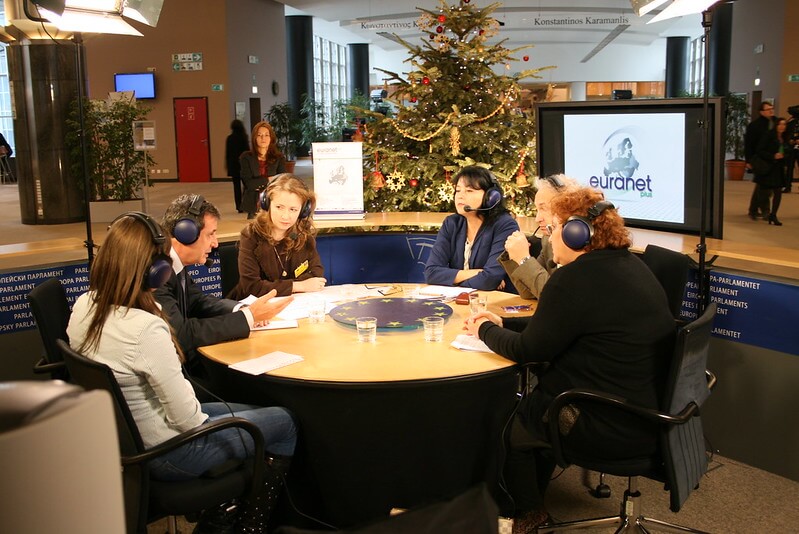Studying Abroad: 8 Students Weigh In With What Helped Them Most
The experience of studying abroad is, for many, a once-in-a-lifetime moment. If you are fortunate enough to get this opportunity, you need to take it seriously and do your research to make the most of it. In the following article, we will be looking at what some other students have had to say about their studying abroad experiences. Let’s begin!
Celia Ramajo, Belgium
Get a bank account that has good conditions for use abroad. For example, one that doesn’t charge commission each time you withdraw, allows online transfers and queries, and provides more than one card (in the case of theft or loss). There are many banks that don’t offer all these features, and it’s so important not having money problems when you’re living abroad on your own.
(SOURCE: https://www.omio.com/blog/50-things-wish-knew-studied-abroad/)
Erin Frances Walton, Chile
As tempting as it may be, resist the initial urge to blow your budget on gorgeous knickknacks, meals out, and traditional handicrafts. Remember, you’ll be in your new home for several months and your pennies need to last. To keep to a reasonable budget, use this time to learn how the locals eat and shop. Avoid paying more for services and transport by asking your teachers or host family what the local prices are. Our best tip? If your visa conditions allow, find a part-time job. Not only will your income increase, but your language skills will quadruple!
(SOURCE: https://www.ef.edu/blog/language/10-tips-to-study-abroad/)

Dale, New York
Towards the end of freshman year, I decided I wanted to study abroad during my sophomore year spring semester. Right away I started planning. Over the summer, I found the program I wanted to do and researched all the details about it. I went ahead and booked my flight and even lined up an apartment I found on Airbnb. Then once school started back in the fall, I applied for my program and was accepted to it. Finally, in the months leading up to my departure, I obtained the student visa I needed and locked down some other details like registering for classes.
Planning ahead is crucial because there are a LOT of details you will need to take care of before you study abroad. I recommend that you start planning at least six months in advance of when you plan to leave so you have time to get everything done.
Andy Steves, Europe
“Centrally located” is relative — is the hostel in the center of the Old Town or close to a drab business center? Make sure to look at a map to figure out where the city center is and where the hostel is in relation. It’s not terrible to stay outside the center, but check into the public transportation needed so that you don’t end up spending more on transfers than splurging for a slightly more expensive bed. Search engines like Hostelworld will let you search for hostels in map views to help with this.
(SOURCE: https://www.gooverseas.com/blog/study-abroad-travel-tips)
Liden & Denz, Russia
The best advice is to try and overcome … insecurities by truly embracing your time abroad. Take part in everything school has to offer – field trips, excursions, and traditional cuisine master classes. Make friends in school – teachers included – and outside. Use social networks. Ask questions. Read the local news. Do the bar hopping with locals. Say yes to that coffee date, strike up conversation in basic Russian and go exploring! The “best time of your life” cliché is a cliché for a reason – it’s true!
(SOURCE: https://www.dreamstudiesabroad.com/articles/study-abroad-advice)
Seth Peyla, United Kingdom
If you’re comfortable and feel safe, DO take trips alone – you can decide where to stay, eat, and explore without having to ask anyone else.
(SOURCE: https://www.buzzfeed.com/annakopsky/study-abroad-tips-that-arent-garbage)
Itunu Abolarinwa, United Kingdom
Google is free. However, sometimes you just don’t know what questions to ask. Here are a few things to consider: What are the living costs? Are the food and accommodations expensive? Regarding academics: How are the semesters organized in your study abroad program? What is the workload like? How will you be assessed and how will your grades translate back to your home college?
It’s also worth thinking about the culture and accessibility of the city in which you’ll be studying. What is the transportation like? Are there good barbers or places where you can get your hair cut or styled? What is the culture of your university or country? Is it very liberal or very conservative? The answers to these questions can help your experience.
(SOURCE: https://tsl.news/a-brit-abroad-6-tips-for-studying-abroad/)
Rachel Bergan, South Carolina
Now I’m not trying to scare you, but living conditions in Europe can be less than glamorous. I live in off-campus housing in South Carolina, where we are downright spoiled: I live in a 4 bed, 4.5 bath house, with walk in closets, a full laundry system, and a community with two pools and two fitness centers. I was in for a serious reality check when I walked into my apartment in Florence. I had to walk up four flights of stairs (which made it pretty entertaining when my roommates and I tried to lug our 50 pound suitcases up them) with six other girls in an apartment that was about 1,000 square feet. We were literally living on top of each other. Your “closet” will likely be smaller than your freshman dorm room closet, the floors will likely be marble (read: freezing), and it is unlikely that you will have heat or air conditioning.
(SOURCE: https://www.internqueen.com/best-four-months-my-life-tips-tricks-and-bits-advice-studying-abroad)
Studying Abroad Is An Exciting Time
True adventure is a rare thing in the life of an average person. Studying abroad gives you the chance to have an adventure of your very own, seeing places that you might very well never see again but creating memories destined to last a lifetime.
Now it’s your turn, readers. What are some of the tips that you would most like to share from your experiences of studying abroad? Share them in the comments section below!
[Featured Image by Flickr Creative Commons]









